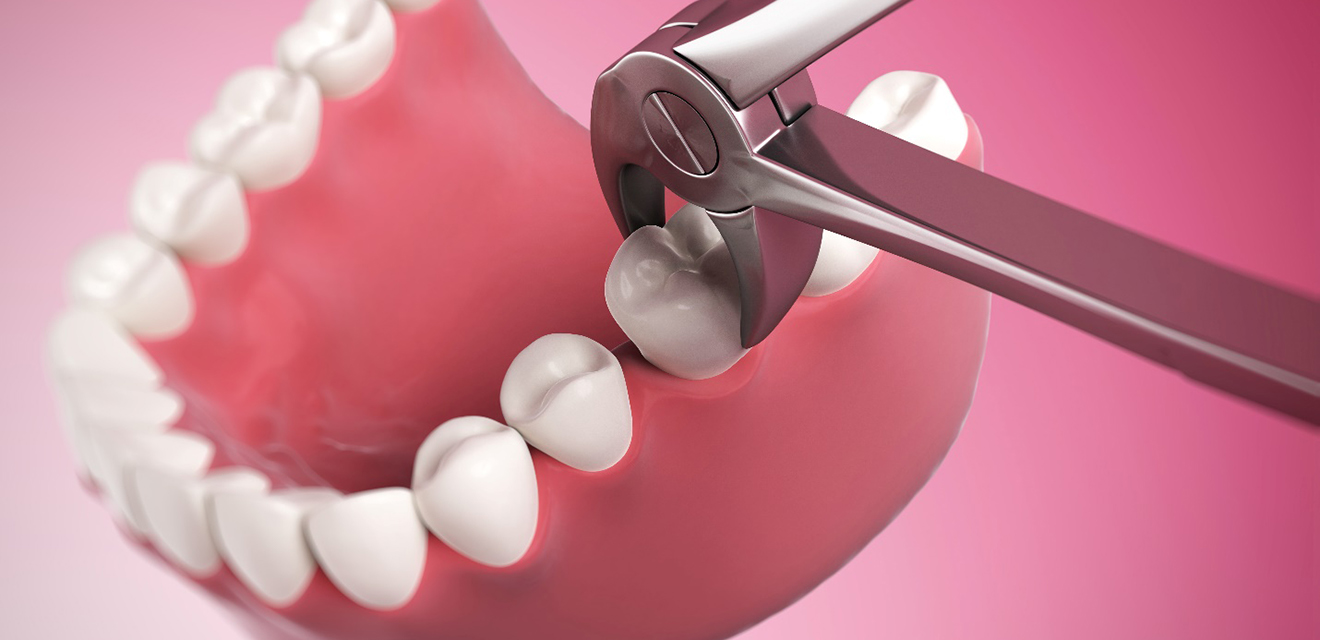Tooth Extractions – Denver, CO
Rebuilding a Healthy Foundation For Your Smile
If you are experiencing severe pain caused by a damaged tooth or advanced tooth infection, you may need to receive a tooth extraction in Denver. At Pearl Dentistry, we strive to help our patients preserve all of their natural teeth, which is why we only resort to extractions whenever it’s necessary to ensure the health of the rest of the teeth.
Why Choose Pearl Dentistry for
Tooth Extractions?
- A Team Always Striving to Get Better
- Same-Day Emergency Appointments Available
Common Reasons for Tooth Extraction

There are a variety of issues that can result in the need for a tooth extraction. Some reasons why this procedure would be necessary include:
- Severely damaged or decayed teeth that can’t be repaired with a filling.
- A severely infected tooth.
- Crowded teeth that need to be removed in order to have successful orthodontic treatment.
- Loose teeth as a result of gum disease.
The best way to learn whether you require this treatment is to visit our office so we can closely examine your mouth and take X-rays to determine the root of the problem. We’ll discuss each of your options with you and how we can rebuild your smile after your procedure, if necessary.
How Tooth Extractions Work

Many patients worry that the procedure is going to be painful. However, before the treatment begins, we’ll administer local anesthesia to completely numb the area. Using dental forceps, we’ll remove the damaged or crowded tooth to prevent problems from developing with your other natural teeth. After your procedure, we’ll provide you with some aftercare tips and discuss any follow-up appointment plans with you to ensure that you’re healing properly.
Tooth Extractions FAQs

Is There an Alternative to a Tooth Extraction?
Typically, tooth extractions are only recommended by dentists when no other options are available. As excellent as modern tooth replacement can be, it’s always a good idea to keep as many of your natural teeth as possible.
In some circumstances, tooth extractions may be one of several treatments being offered to you. In the case of a severely infected tooth, for example, you may be able to pick between either an extraction or a root canal. In that case, we’ll present that choice to you and help you remain informed about the decision.
What Are My Options for Replacing a Missing Tooth?
If you do wind up having a tooth extracted, there are fortunately several options that you could choose to replace it.
First of all, there are dental bridges. These involve sandwiching one or more false teeth in between two dental crowns. These crowns adhered to natural teeth, providing the restoration with excellent security. Dental implants are also an excellent way to replace a tooth. A crown or bridge can be attached to thin metal posts that are surgically implanted into the jaw.
If you need to replace most or all of your teeth, dentures are one of the easiest ways to do this. You can get partial, full, or even implant dentures depending on what it is you’re looking for.
Can I Smoke After Getting a Tooth Extracted?
Tobacco products can substantially delay the healing process. The smoke irritates the wounds, and nicotine restricts blood flow to the mouth, both of which prevent healing. In addition, the suction involved in smoking can pull the emerging clot out of place, leading to an uncomfortable condition known as “dry socket.”
For these reasons, it’s recommended that you abstain from smoking for at least five days after your procedure. If you’ve had difficulty quitting in the past, let us know and we’ll give you tips that could help.
What Can I Do to Speed Up the Healing Time?
After your tooth extraction, we will give you specific instructions for how to manage aftercare. Here are few things that may entail:
- Resting is the most important thing. Be sure to avoid strenuous activity for at least 24 hours after your treatment.
- Keep the gauze in place, and avoid touching the wound itself as much as possible.
- Avoid anything that could irritate the wound.
- Avoid any kind of suction that could pull the clot out of place, creating dry socket.
- Take pain medication as recommended.
